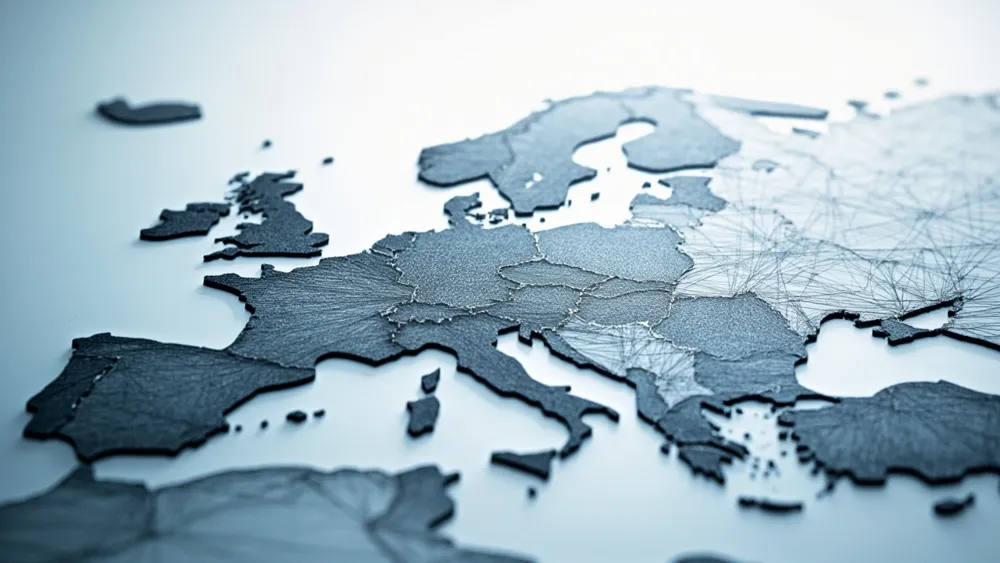"2025 CEEC Expo: Transitioning from 16+1 to All-Europe as Gateway for Continental Cooperation"

The China-Central and Eastern European Countries (CEEC) Expo in Ningbo this year is highlighting an array of specialty products, including fine red wines, freeze-dried fruits, and coffee sourced from Serbia. This year’s event offers visitors a multi-sensory experience of the CEEC, while procurement teams actively engage with exhibitors from around the globe to finalize significant trade deals.
Continuing its reputation as a "golden corridor" linking Europe and Asia, the Expo features vibrant national pavilions from countries such as Slovakia, Slovenia, Hungary, and Poland. These nations are presenting a diverse portfolio aimed at attracting investment in various sectors, including science, education, culture, tourism, and digital innovation.
However, this year's edition stands out due to its expansive vision. The upcoming Expo in May 2025 represents a strategic pivot from the traditional "16+1" framework, transitioning into a more inclusive partnership that encompasses all of Europe.
In a historic move, France, Germany, Italy, and Spain, nations previously outside the boundaries of the CEEC framework, have now joined the ranks of participating countries. Their involvement is more than mere ceremonial participation; they are showcasing prominent consumer brands and treating the event as a genuine opportunity for market engagement and new cooperative ventures with China.
This evolution highlights two key trends: China’s ongoing deepening of trade relations with Central and Eastern European nations, and its ambition to reshape the narrative of its economic engagement in Europe. Against a backdrop of fluctuating geopolitical relations and economic uncertainties, the Expo presents a constructive vision centered on pragmatic multilateralism and cultural connectivity.
Exhibitors from pavilions representing Poland, Hungary, and Slovenia are sharing space with booths from French wine producers, Italian design firms, and German clean-tech startups for the first time. For these Western European participants, the CEEC Expo represents a unique opportunity: access to China’s rapidly expanding consumer market, exploration of new procurement avenues, and insights into international business practices within a different cultural and regulatory framework.
The motivations amongst the exhibitors are notably diverse. Some view China as an essential growth market in light of stagnant domestic demand, while others have been invited by Chinese partners eager to expand sourcing from established European markets. Many have expressed that they previously did not regard Ningbo as a strategic location, yet after participating, they are considering returning and forming local partnerships.
In response to these shifts, the organizing committee has embraced transformation by distributing 1.5 million yuan (approximately $200,000) in discount vouchers to the public. This strategy not only enhances product visibility but also creates immediate feedback channels for European brands to gauge market response. A senior official from Germany emphasized that China’s outreach to Europe calls for a perspective that transcends zero-sum thinking.
For China, expanding the CEEC Expo serves as a strong statement of its openness to Europe, indicating that its economic partnerships extend beyond a select few and encompass much more of the continent. It invites broader participation in a collective economic future that is not solely dictated by the frameworks of Brussels or Beijing, but rather co-constructed by businesses, cities, cultures, and individuals.
Ningbo is playing a dual role—not just as a logistical hub but also as a symbol of China’s ambition to establish trusted economic corridors with the wider European landscape. This Expo acts as a nexus where trade policies converge with local tastes, regional outreach aligns with continental aspirations, and the next chapter in China-Europe relations is quietly unfolding—crafted through shared commerce and mutual agreements.
Read These Next

Trump Refuses to Cut $1 Trillion Military Budget
Trump affirmed at West Point graduation that the $1 trillion US defense budget won't be cut, impacting global relations.

Trump's Tariff Threat on Apple: Impact on Tech Sector and Investors
Trump's tariff threats against Apple could lead to significant stock volatility and broader implications for the tech sector as manufacturing and pricing strategies come under scrutiny.

Huawei Unveils Exciting New Product Line in Mexico City
Huawei launched its 'Fashion Next' product line in Mexico City, featuring new smart devices like wearables and tablets.
